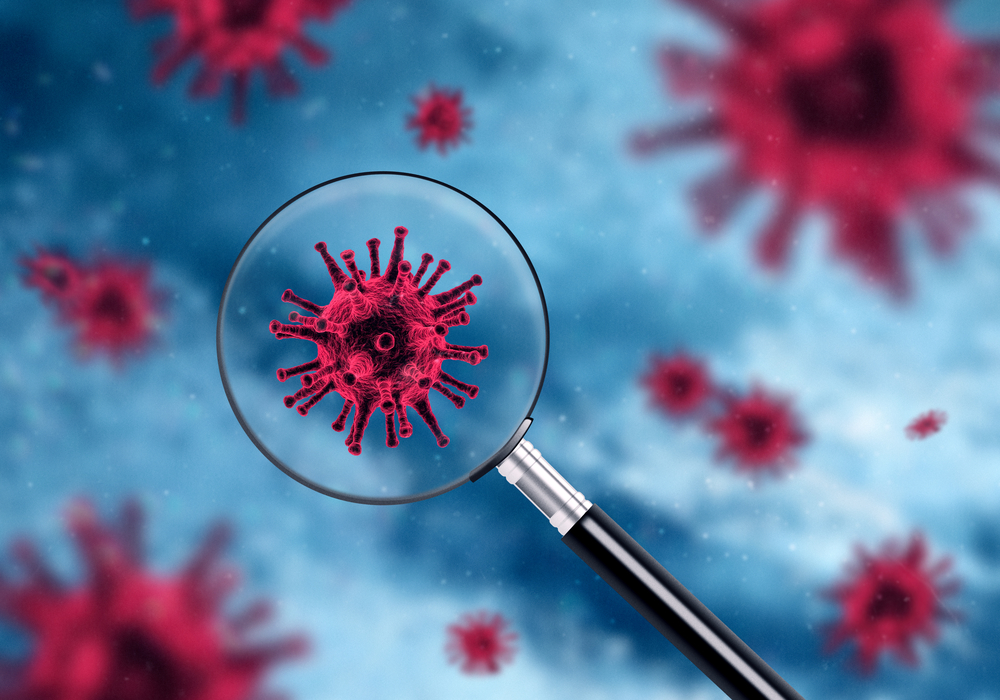While warning that the Covid-19 cases may go up, Dr N K Arora, Co-Chair of Indian SARS-CoV-2 Genomics Consortium said that the Delta variant was primarily responsible for the second wave in the country.
The variant is also around 40-60 percent more transmissible than its predecessor, the Alpha variant, and has already spread to more than 80 countries, including the UK, the US, and Singapore.
It emerged in Maharashtra and travelled northwards along with the western states of the country before entering the central and the eastern states.
The Delta Plus variant—AY.1 and AY.2—has so far been detected in 55-60 cases across 11 states, including Maharashtra, Tamil Nadu, and Madhya Pradesh, and is still being studied for its transmissibility, virulence, and vaccine escape characteristics, Dr Arora said, according to a Union Health Ministry statement.
The Delta variant has mutations in its spike protein, which helps it bind to the ACE2 receptors present on the surface of the cells more firmly, making it more transmissible and capable of evading the body's immunity, Dr Arora said.
"The B.1.617.2, a variant of Covid-19 known as the Delta variant, was first identified in October 2020 in India, and was primarily responsible for the second wave in the country, today accounting for over 80 percent of new Covid-19 cases," he said.
On whether it causes a more severe disease as compared to other variants, Dr Arora said there are studies that show that there are some mutations in this variant that promote syncytium formation.
"Besides, on invading a human cell, it replicates faster. It leads to a strong inflammatory response in organs like the lungs. However it is difficult to say that disease due to the delta variant is more severe. The age profile and the deaths during the second wave in India were quite similar to that seen during the first wave," he stated.
Dr Arora said current vaccines are effective against Delta variants as per the studies undertaken by ICMR on the issue.
On some parts of the country still witnessing a spurt in the number of cases, he said, though there is a significant dip in the number of cases in most parts of the country, some regions are witnessing a high-Test Positivity Rate (TPR) particularly in the north-eastern part and several districts in the southern states, most of these cases could be due to the Delta variant.
On whether future waves could be prevented, Dr Arora said a virus begins infecting a part of the population, which is most susceptible and also exposed to the infection. It diminishes after it successfully infects a large proportion of the population and strikes back when the immunity developed in the people post-natural infection fades.
"The cases may go up if a new, more infectious variant comes. In other words, the next wave will be driven by a virus variant to which a significant proportion of the population is susceptible," he said.
The second wave is still going on. Any future waves will be controlled and delayed if more and more people get vaccinated and adhere to Covid appropriate behaviour, he stressed.
There is a need to keep a strict vigil on the emergence of variants of concern and outbreaks so that they can be contained before they spread to a larger region.
The Indian SARS-CoV-2 Genomics Consortium (INSACOG), established in December 2020, was a consortium of 10 laboratories. Recently 18 more laboratories became part of it, Dr Arora said.
The INSACOG is a consortium of 28 laboratories for whole-genome sequencing in the context of the Covid-19 pandemic and was established on December 26, 2020.
The idea is to have a strong network of laboratories to do genomic surveillance of the SARS-CoV-2 and correlate whole genomics sequencing (WGS) data with clinical and epidemiological data to see whether or not a variant is more transmissible, causes more severe disease, escaping immunity or causing breakthrough infections, affecting vaccine efficacy, and diagnosed by current diagnostic tests, he said.
The National Center for Disease Control (NCDC) analyses this data. The entire country has been divided into geographical regions and each lab is given the responsibility of one particular region.
"We have formed 180-190 clusters with around four districts in each cluster. Regular random swab samples and samples of patients who develop severe illness, vaccine breakthrough infections, and other atypical clinical presentations, are collected and sent to regional laboratories for sequencing. The current capacity of the country is to sequence over 50,000 samples per month; earlier it was approximately 30,000 samples," he said.
The new mutations/variants of concern are cultured and scientific studies are undertaken to see the impact on infectiousness, virulence, vaccine efficacy, and immune escape properties.









